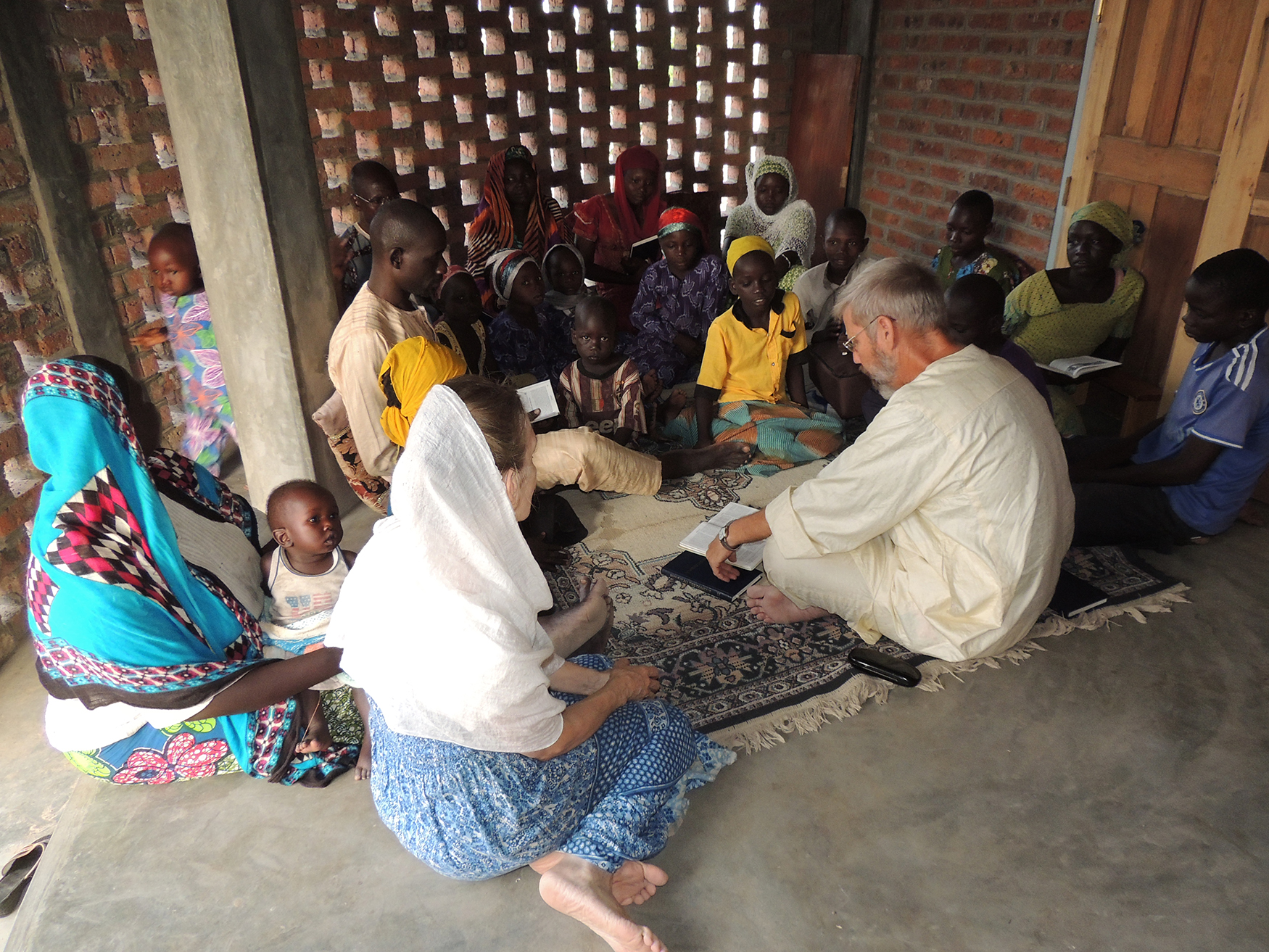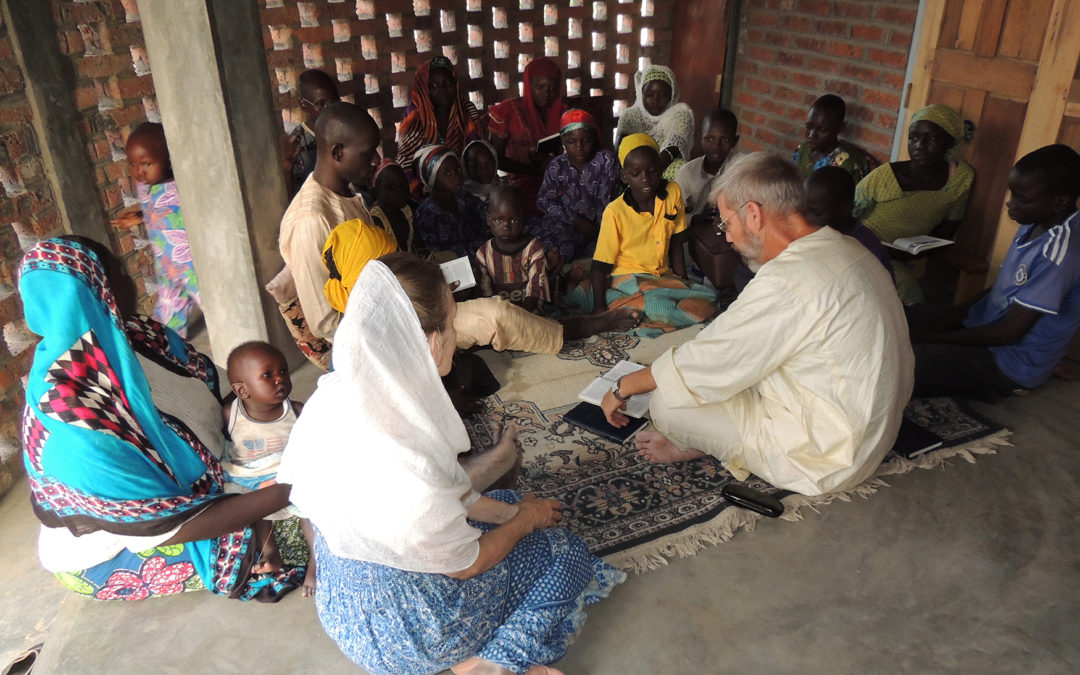
God incomprehensible
makes himself understood
in this humanity (of Jesus),
God ineffable (indescribable in words)
makes himself heard
in the voice of his Word-in-flesh, and
God invisible
makes himself seen
in the body that he united with the nature of the Eternal.
And God, dreadful when his majesty breaks forth,
makes himself felt
in his sweet gentleness, in his loving kindness and human compassion,
according to the words of the apostle:
“The human compassion and loving kindness of God
our Savior has appeared to the world.” (Titus 3:4)
— Pierre de Bérulle, 17th-century French theologian and reformer
When the Son of God embedded himself into humanity, the Most High made himself the lowest, the First took the last place, and the Sovereign of the universe hung on an umbilical cord in a poor Jewish girl, gladly.
Presently, we are guests in a tiny, poor Arab village. Religious authorities forbid the public proclamation of Christian faith in our region. A neighboring village chief has objected to our presence. The piece of desert on which we built our homes and school is simply a gift for our use. Some say it’s a precarious situation. Yet, was not Jesus’ entrance into the world even more fraught?
In our little mission camp, we educate aspiring missionaries. Our pedagogy respects African culture: conversation and relationships count a great deal. No tests, no diplomas, just oral readings, good discussion, husbands and wives together, common prayer and common labor. We seek to get to the heart of Jesus and to the heart of what will prepare us to follow him in mission.
For Jesus is the mission of God: God, deep in this seed of the woman and of Abraham, come to crush Satan and bless all ethnic families (Genesis 3:15; 12:3). Jesus is the kingdom—the saving presence of David’s seed come to reign kindly in and for human beings (2 Samuel 7:12). His earthly sojourn is the revelation of just who God is and what he’s up to.
And so—in whatever we’re up to—Jesus addresses us: “Follow me” and “As the Father sent me, so I send you” (John 20:21). Notice: His being, life and mission configure ours.
If we’re to keep in step with him, where’s he going? Dietrich Bonhoeffer stated: “When Christ calls someone to follow him, he bids that person to die; for, after ‘follow me,’ Jesus adds, ‘and take up your cross.’” The Holy Spirit, who shaped Christ and his mission, also shapes Christ’s members and their mission in like contours, in cruciform.
In fact, Jesus’ life is a perpetual sacrifice—of soul and body—to the Father, for the multitude. From the womb of the Virgin the cross seems engraved, as it were, in scar tissue on Jesus’ sacred heart. In his every state, act, word, disposition and heartbeat, the cross is simply there—the divine adoration through self-abnegation, the chosen lowliness, the preferred obscurity, the love of life-lived-for-others.
What could this mean for our mission?
On the cross, thorns penetrate the skull, piercing and contradicting cherished human thinking, especially about God. Spikes make human strength writhe and wither like a half-crushed frenzied worm. What can one do on a cross? Give up. Die. It seems absurd, a gross failure, a reason to despair. Who wants to follow that?
But when pretentious intellect and vain self-confidence breathe their last, God provides for what he’s planned. He has a marvelous habit of bringing life out of death, of making wise the absurd and a capital success of apparent failure. With him despair is not far from grace (Luther). What he kills, he elevates and perfects by resurrection.
After all, it’s his mission, isn’t it?
Consequently, the cross liberates me from my addiction to the religious feeling that I have to win God’s favor. I don’t, for Jesus did. Also, as one of my seminary professors used to say, I no longer need to survive, win your approval, or “succeed” in the eyes of people. I don’t, for Jesus didn’t. I’m free. Free to follow the way of Jesus in mission, free from the pressure to strategically pull off an Ishmael in order to make my life’s work look good.
While the formal study of missions ever clamors for new methods, employing the latest tools from the social sciences to achieve measurable results, Jesus still walks, silently waiting to be noticed, still calling: “Follow me.”
Jesus’ start-up in mission, for example, holds profound lessons for ours. His early itinerary teaches that, in order to go up, go down to the marginalized who sit in darkness; to do something big, get little, submit yourself to other people and consider their needs as more important than you and yours; to shine light, seek a hidden life of prayer, watching and waiting on God; and to make the voice heard, learn to be quiet and listen—for the kingdom does not consist in talk but in power (1 Corinthians 4:20), in a voice of thin silence (1 Kings 19:12).
What’s the result? Luke says—twice—that Jesus grew in wisdom and in favor with his Father and people (Luke 2:40, 52). If you have wisdom and favor, you have a ministry, a circle of influence and something worth communicating, something felt in the heart of the hearer to be from above.
So-called incarnational ministry doesn’t necessarily mean you will look, cook and smell like the host culture (though it may help!). It does mean, however, that the attitudes and forms of ministry will issue from Christ’s concrete life in the context of local culture. The goal will be to so announce the heart of Jesus (another way to say grace) that God makes himself felt in his sweet gentleness, in his loving kindness and human compassion.
In our present situation, we’ve been made very dependent on the favor of God and the people. On the day our village chief promised us land, he remarked, “I see no reason why we can’t live together in mutual respect.”
Nor do we.
Paul Szobody serves Lutheran Brethren International Mission with his wife Teresa as missionaries in Africa.

